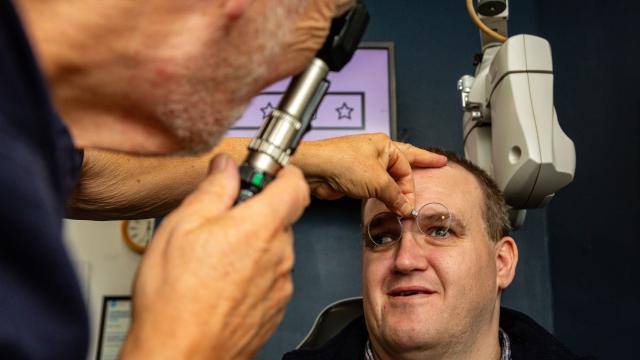Access to eye care services during Covid
If you have any worries about your eyes, changes to how you see or problems with your glasses, you should not wait. Please phone your usual optician or optometrist for their advice now.
Optometrists are prioritising urgent, emergency and essential eye care services. As they now have cleaning and PPE procedures in place, they are also able to provide some routine eye care. Contact them for further advice if you are due an eye test.
You should call your optician or optometrist if you have:
- changes to your vision
- a painful or red eye
- broken or lost glasses where you need a replacement pair to be able to see
- a problem with contact lenses
If you are told to go to the opticians and you think you have any Covid-19 symptoms, tell your practice, but do not visit them.
Most eye clinics in hospitals are giving routine appointments. So that it is safe for everyone to attend, sometimes online appointments are being offered. If you receive an appointment you should attend if you can, if you are shielding contact the clinic for their advice.
More information on eye care during Covid-19 from the College of Optometrists.
Advice for people supporting someone with a learning disability or autism
We know how important it is for everyone who has a learning disability or is autistic to have regular eye tests. They are 10 times more likely to have eye problems and they may struggle to communicate changes or issues.
We all have a responsibility to look for signs and symptoms of eyesight changes in people we support. We can take action and prevent them from unnecessarily losing their sight during this time. Our free resources can help.
Our easy-to-use Functional Vision Assessment (FVA) tool helps to simplify this process
A Functional Vision Assessment gives an indication of how well someone uses their sight in everyday life. It's designed to be filled in by someone who knows the person well, like a carer, supporter or learning disability professional. As we're all likely to be staying around the same people at the moment, there will be more opportunities to observe how people are using their vision.
Using our free FVA tool, you can get an indication of what a person might see or have difficulty seeing. An FVA can be very useful before someone attends an eye test or eye clinic appointment to identify potential problems. The observations made from using the FVA tool should be shared at someone’s next eye appointment to help them get the best support. If the assessment suggests there may be a new problem with their eyes or vision call your optician/optometrist.
View the FVA tool and simple guides on how to use it.
If you have any queries or need further help please contact us at eyecare@seeability.org.


